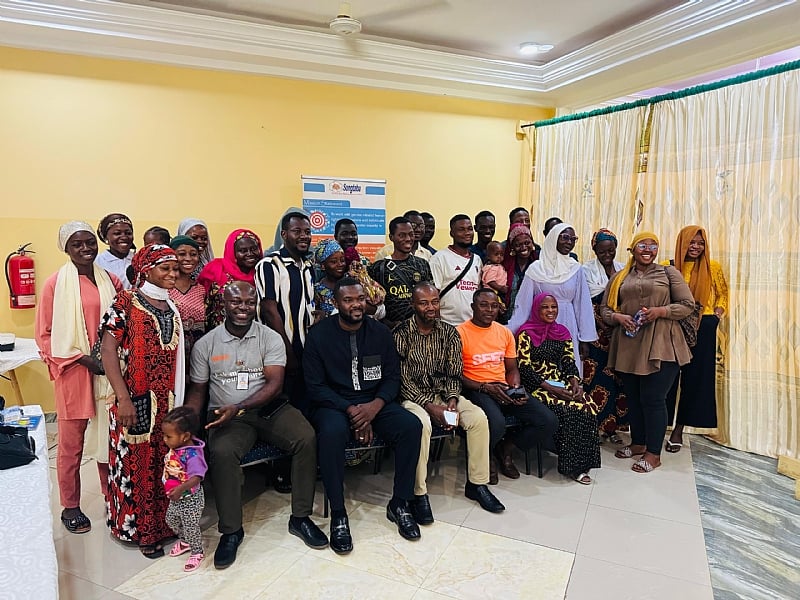The Regional Stakeholder Conference on Labour Rights and Social Protection, organized by Songtaba and Oxfam in Ghana, brought the precarious situation of informal sector workers to the forefront. This sector represents a substantial portion of Ghana’s workforce, yet its employees frequently lack basic protections, exposing them to exploitation and economic insecurity. The conference served as a critical platform for dialogue and action, aiming to address pressing issues like workplace safety, fair compensation, and access to social security benefits for these vulnerable workers. The conference also highlighted the importance of gender equality and inclusion in the workplace, focusing on initiatives like the development of workplace sexual harassment charters and equitable gender model workplace policies. This emphasis stemmed from the recognition that women often face disproportionate challenges in the informal sector, including gender-based violence and discrimination.
Songtaba and Oxfam in Ghana initiated the conference as part of their broader Gender Transformative Actions and Social Inclusion Project. This project aims to create fairer and more inclusive working environments across the country, recognizing that economic growth and social development must be inclusive to be sustainable. Adam Lamnatu, Executive Director of Songtaba, underscored the importance of collaborative action, emphasizing that labour rights and social protection are fundamental rights, not privileges. She argued that these rights must be extended to all workers, regardless of their employment status, and framed the conference as a crucial step toward achieving a more just and equitable work environment for all Ghanaians. The collaborative nature of the conference, bringing together diverse stakeholders, reflects the understanding that addressing the challenges faced by informal sector workers requires a multi-pronged approach.
The conference facilitated vital dialogue between informal sector workers, policymakers, organized labour groups, and other key stakeholders. This direct engagement ensured that the voices and experiences of those most affected by precarious working conditions were heard and considered in policy discussions. Discussions focused on critical areas such as workplace policies, labour rights, and effective strategies to improve working conditions for informal sector employees. A key aspect of these discussions was the need for legislative frameworks that specifically address the vulnerabilities of informal workers, providing them with robust protection against discrimination, exploitation, and harassment. This direct dialogue between workers and policymakers was crucial for bridging the gap between policy intentions and ground realities.
Participants emphasized the urgent need for stronger enforcement of existing labour laws and the development of new policies tailored to the unique circumstances of informal employment. Current labour laws often fail to adequately address the informal sector, leaving workers vulnerable. Participants advocated for policies that recognize the diverse nature of informal work and provide appropriate protections. Another crucial area of focus was expanding access to social security benefits for informal sector workers. These workers often lack the safety nets provided by formal employment, leaving them exposed to hardship during times of illness, injury, or other crises. The conference underscored the importance of social protection as a vital component of a just and equitable society.
The conference also delved into the specifics of creating safer and more equitable workplaces, particularly focusing on gender equality. The development and implementation of workplace sexual harassment charters were discussed as a key strategy for preventing and addressing gender-based violence and harassment in the informal sector. The creation of equitable gender model workplace policies was also highlighted, emphasizing the need to create working environments where women have equal opportunities and are free from discrimination. These initiatives aim to address the systemic inequalities that often disadvantage women in the informal sector.
As Ghana pursues its development agenda, initiatives like this conference underscore the critical need to integrate informal sector workers into the national labour framework. The discussions and resolutions from the conference are expected to inform future policy development and advocacy efforts. By bringing together diverse stakeholders, the conference provided a valuable platform for sharing insights and best practices, ultimately contributing to a more holistic and effective approach to improving the lives of informal sector workers. The goal is to ensure that the benefits of economic growth and social development reach all segments of society, including those working in the informal economy. The conference serves as a crucial step towards realizing a more inclusive and equitable future for all Ghanaian workers.


